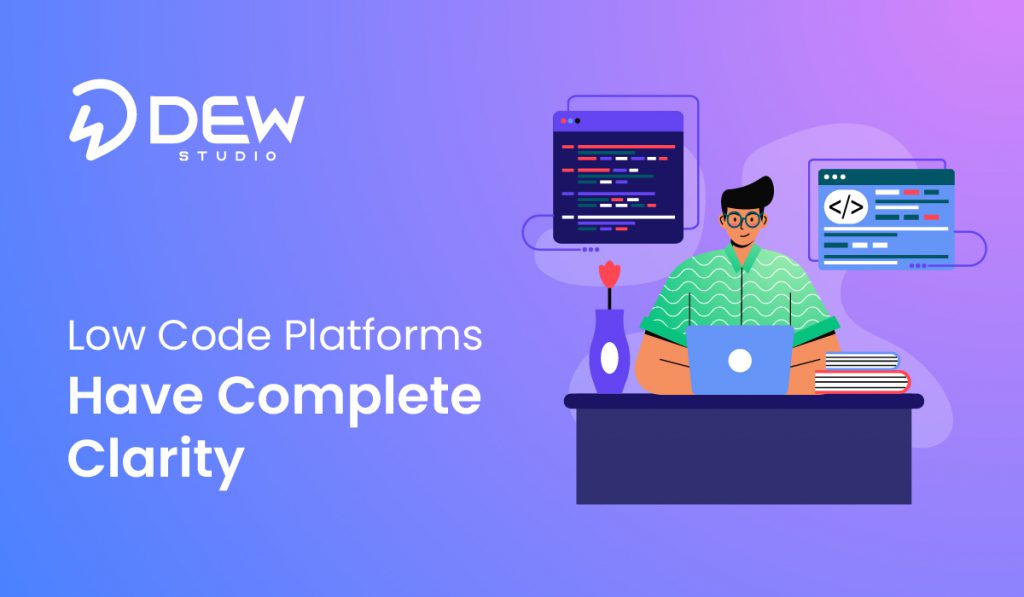
Have you ever considered building custom applications without the need for extensive coding skills? In recent years, a groundbreaking trend has gained momentum in software development – the surge of low code platforms. These innovative tools empower individuals to create applications using intuitive visual interfaces and drag-and-drop functionalities, revolutionizing the way software is developed.
According to a recent study by Gartner, over 65% of application development activities will be carried out through low code platforms by the year 2024. This remarkable shift towards low code development has reshaped industries like finance, healthcare, manufacturing, and retail, offering unprecedented efficiency and agility in application development processes.
For instance, a leading healthcare provider successfully streamlined their patient data management system using a low code platform, reducing development time by 40% and enhancing data accuracy and accessibility for healthcare professionals.
In this blog, we will explore some of the success stories of low code implementation across industries and discuss the key takeaways that we can learn from these trends.
- Finance Industry Success Stories:
The finance industry has seen significant benefits from adopting low code platforms. One success story is that of a global financial services company that used low code development to streamline their loan approval process.
By building an application on a low code platform, they were able to automate various tasks, reducing the time it took to process loan applications from weeks to just a few days. This not only improved efficiency but also enhanced customer satisfaction.
- Key Takeaway: Low code platforms can help automate complex processes and improve efficiency in the finance industry.
- Healthcare Industry Success Stories:
In the healthcare industry, low code development has been instrumental in enhancing patient care. A notable example is a hospital that implemented a low code platform to develop a mobile application for patient monitoring.
The application allowed healthcare providers to remotely monitor patients’ vital signs, reducing the need for physical visits. This resulted in improved patient outcomes and reduced healthcare costs.
- Key Takeaway: Low code platforms can be used to develop innovative applications that improve patient care and reduce healthcare costs.
- Manufacturing Industry Success Stories:
The manufacturing industry has also witnessed the transformative power of low code development. One manufacturing company used a low code platform to build a real-time inventory management system.
By integrating the system with their production line, they were able to track inventory levels, automate procurement, and optimize their supply chain. This not only helped them reduce costs but also improved their overall production efficiency.
- Key Takeaway: Low code platforms can enable real-time data integration and automation, leading to cost savings and improved efficiency in manufacturing.
- Retail Industry Success Stories:
The retail industry has embraced low code development to enhance the customer experience. One retail company used a low code platform to build a personalized shopping application.
The application analyzed customer data, preferences, and past purchases to provide personalized recommendations and offers. This resulted in increased customer engagement, higher conversion rates, and improved customer loyalty.
- Key Takeaway: Low code platforms can be leveraged to build personalized applications that enhance the customer experience and drive business growth in the retail industry.
- Education Industry Success Stories:
In the education sector, low code development has proven to be a game-changer. A university implemented a low code platform to build a student management system that automated various administrative processes, such as course registration, fee payment, and grade tracking.
This streamlined system saved time for both students and staff, leading to improved productivity and better academic outcomes.
- Key Takeaway: Low code platforms can simplify administrative tasks and improve productivity in the education industry.
Trends in Low Code Overall Future predictions
Recent studies have shown that organizations adopting low code platforms have experienced an average improvement of up to 70% in development speed and a 40% reduction in overall development costs.
As we look towards the future, the use of low code technology is expected to continue its upward trajectory, with forecasts predicting that by 2024, over 65% of all application development will be done using low code platforms.
This shift towards low code technology is set to empower businesses to rapidly innovate, adapt to changing market demands, and accelerate their digital transformation initiatives, ultimately driving growth and success in the competitive market landscape.
As the low code movement continues to gain traction, it is crucial for businesses to remain agile and embrace this trend to drive their digital transformation efforts. By learning from the success stories shared across industries, organizations can adapt new opportunities and build a competitive edge.
Conclusion
The adoption of low code platforms has proven to be a transformative force across various industries. The key takeaway from these success stories is that low code development can offer significant benefits in terms of cost savings, streamlined processes, improved customer experiences, and enhanced productivity. As organizations continue to explore the potential of low code, it is essential to stay informed about the latest trends and learn from the success stories to capitalize on this transformative technology.
For organizations looking to use low code platforms and start on their transformative journey, Dew Studio is here to help. Explore how Dew Studio can assist you in embracing low code solutions to drive innovation, efficiency, and growth in your business. Contact us today to start your low code transformation!


